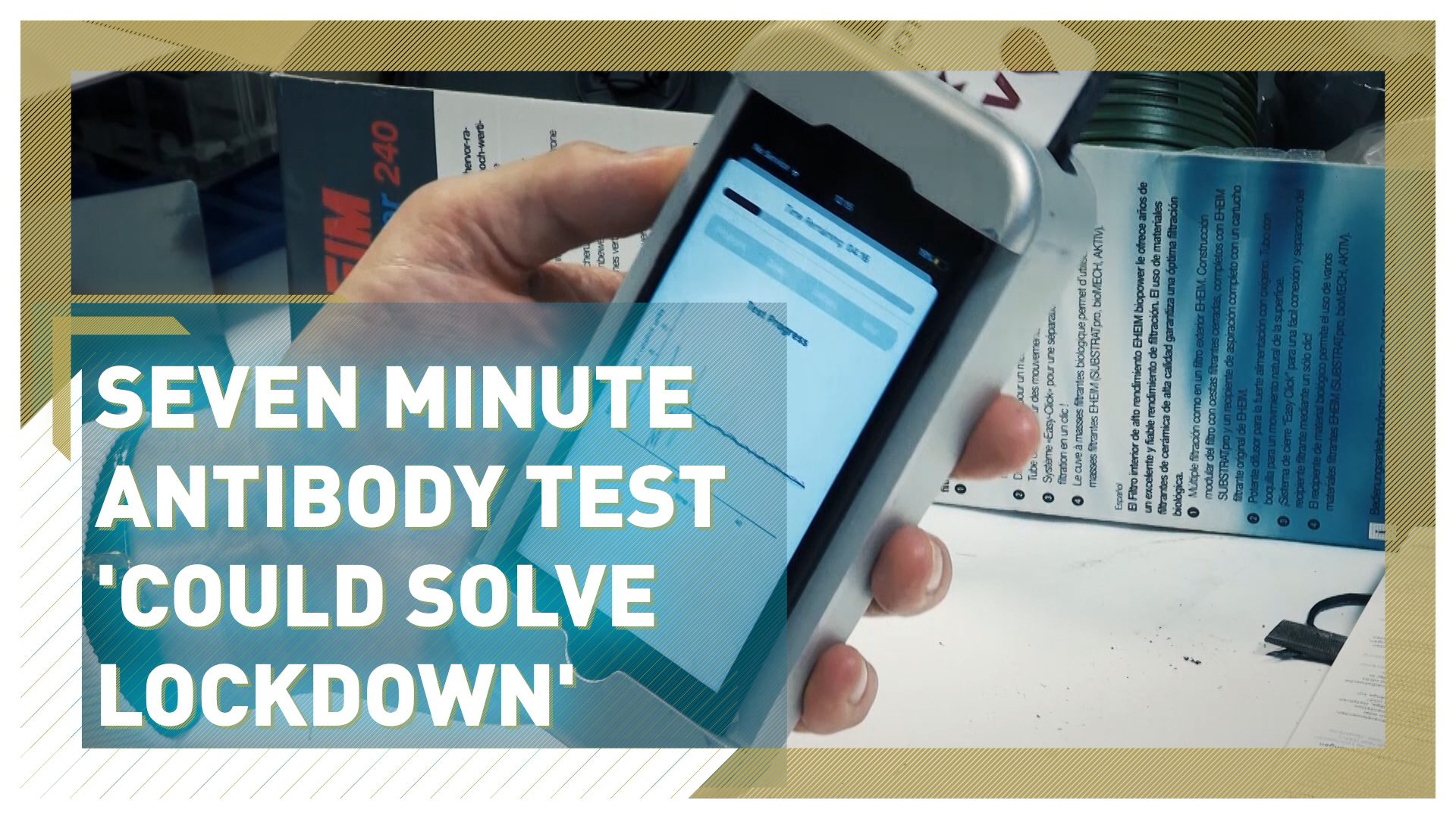02:36

With more than 40 percent of people with COVID-19 showing no symptoms, many people want to know whether or not they have had the virus.
The answer to that is a fast, reliable antibody test.
Scientists at the University of Exeter have developed one and are ready for it be manufactured and used around the UK.
It is a highly sensitive test, with a process which appears deceptively easy.
A tiny prick of blood is put in a mini test-tube and run through a testing machine.
And this is where the invention comes in.
In the testing machine there are 170 sensor spots - these are a collection of nanoparticles.
The blood is detected by nanoparticles allowing scientists to discover what antibodies are in the blood sample. These could be for one of the main flu vaccines or COVID-19 antibodies.
The next part of the process involves washing the blood's surface and sending another molecule over it to give the strength or sensitivity of the antibody.
It means that within seven minutes you have the results to eight different tests.
You can find out whether you previously had the virus, and potentially even whether you currently have it.
Generally antibody tests take up to 72 hours to turn around results.
The Exeter University test can also tell you whether you are suffering from any of the four most common strains of this year's flu or whether your flu vaccination has worked.
It's a triple positive because it's responded to three parts of the virus with three antibodies. That gives you more confidence the test is accurate
- Prof Andrew Shaw
The research is led by Prof Andrew Shaw. He says the beauty of the test is it can identify three different types of COVID-19 antibodies.
"It's a triple positive because it's responded to three parts of the virus with three antibodies. That gives you more confidence the test is accurate," Shaw says.
"Imagine a patient going to hospital, coughing and spluttering. Is it the flu, a second COVID-19 infection or pneumonia? We can get that answer in seven minutes."
Antibody testing has become a controversial topic in the UK. The government bought $20 million worth of tests earlier this year. But it turns out they didn't work as expected.
So these Exeter scientists have been trying to develop a highly sensitive, rapid-result antibody test to help ease the world out of lockdown.
Shaw says they're also working on a saliva test which could get people back to school, work and traveling again by showing whether they currently have the virus.
"We need to restart the economy so maybe the way to do that is to screen people into the workforce each day and put them under surveillance and look for changes in their blood or saliva," Shaw said.
The future of workplace testing could be a portable device that fits into the palm of your hand.
The team has also developed a hand-held COVID-19 test. It's going though its final trials.
The other great benefit of it, other than its small size and speedy results, is it uses geo-locating to pinpoint outbreaks on a map. This allows health officials to monitor local infection spikes.
"We are going to be living with COVID for a while," said Shaw. "A vaccine may only last a year and may need to be topped up, was its response good or is it fading? We may need to make those measurements at home."
And Shaw hopes those measurements will be made on hundreds of thousands of devices used in the field gathering vast amounts of data.
It's a scenario that could see this COVID-19 antibody test become the biggest clinical trial ever performed.
Read more: Live update: Global COVID-19 infections exceed 19.3 million